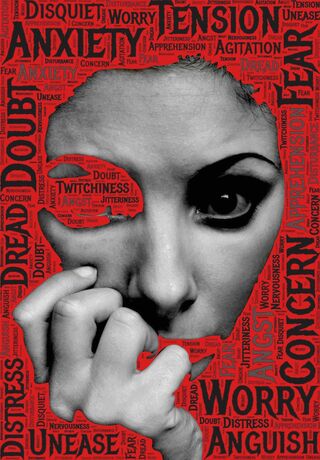Depression
Hoarding, Dysthymia, and Depression: A Tiring Trio
What are PDD and MDD and how can you overcome them when hoarding is a problem?
Posted October 20, 2020 Reviewed by Gary Drevitch

Research from the American National Institute of Mental Health states that depressive disorders are a major mental health concern among the US population.
Dysthymia vs. Depression
What is dysthymia? For adults, it is a chronic but less intense version of major depressive disorder, also known as Persistent Depressive Disorder (PDD), which must occur consistently for at least 2 years. If you have had almost daily depressive feelings for at least that long and don’t know why you can’t shake these feelings off, I encourage you to talk to your doctor about whether you might be living with PDD. For children and young adults, the symptoms are very similar, but they must persist for more than 1 year. Often people with PDD report not knowing what it feels like not to be depressed. Those living with depression know what it's like to have a good day. Not surprisingly more women are affected than men, and more African Americans than Caucasians.
Depression, on the other hand, referred to as Major Depressive Disorder (MDD), is unfortunately a common medical condition negatively affecting how we think, feel, and act. MDD is defined by the intensity and interval duration of presenting symptoms lasting for at least two weeks.
Both MDD and PDD share an impact on family and social life, but differ in the frequency people feel symptoms, over what duration of time, and how severely.
Both can interfere with your ability to concentrate and make decisions. The more pressure and self-blame you engage in, the lower your self-esteem becomes. Feelings of being overwhelmed, embarrassed, worthless, unproductive, and stuck is not a foundation for progress and success.
And if you add disrupted sleep patterns which can leave one lethargic, sleep-deprived, agitated, and anxious. If you aren’t sleeping at the same time as everyone else in your network, how is that affecting what should be a source of resilience and support—your closest relationships?
Symptoms of dysthymia and depression are very similar and include:
- Sadness, emptiness, being on the verge of tears, and hopelessness.
- Habitually responding with anger and frustration.
- Loss of interest in jobs, friends, hobbies, or sexual expression.
- Disrupted sleep patterns.
- Feeling devoid of energy, unable to summon the motivation to carry out activities of daily living.
- Change in eating patterns.
- Feelings of guilt.
- Feeling that there is no optimism on the horizon.

This provides an intensely challenging reality to maintain the mindset and do the work required to resolve hoarding situations because dysthymia and depression involve difficulty making decisions, which is essential for hoarding resolutions. Concentration and persistence can feel like walking through mud up to your hips. Added to this is the anxiety surrounding Covid-19.
We need support, guidance, energy, and motivation to tackle depression and dysthymia, especially when we are dealing with hoarding as well.
Where is the support to help you move forward?
Even in these challenging times, know that you are not alone. Helping professionals have reached out and created virtual contact support resources. YouTube, Zoom, Facebook to name a few have become a platform for users to gather, reach out, and get their needs met. (To find a therapist, visit the Psychology Today Therapy Directory.) See hoarding.ca for additional resources.
We recommend the following books as well:
- On procrastination: Procrastination: Why You Do It, What to Do About It Now, by Jane Burka and Lenora Yuen.
- On Anxiety and Phobias: The Anxiety & Phobia Workbook Sixth Edition by Edmund J. Bourne, Ph.D.
- On Depression and Self-Esteem: David Burns's Feeling Good series, especially, Ten Days to Self-Esteem Workbook.
- On defaulting to Automatic Negative Thoughts: You Are Not Your Brain, by Schwartz and Gladding.
- On Hoarding Behaviors/Disorder: Our own book, Conquer the Clutter: Strategies to Identify, Manage, and Overcome Hoarding.
Support starts with a keystroke. Even if you currently feel overwhelmed, I invite you to take that first small step and begin moving forward today. Take that first step away from OVERWHELMED.
See hoarding.ca for additional resources.
References
National Institute of Mental Health - https://www.nimh.nih.gov/health/topics/depression/index.shtml


